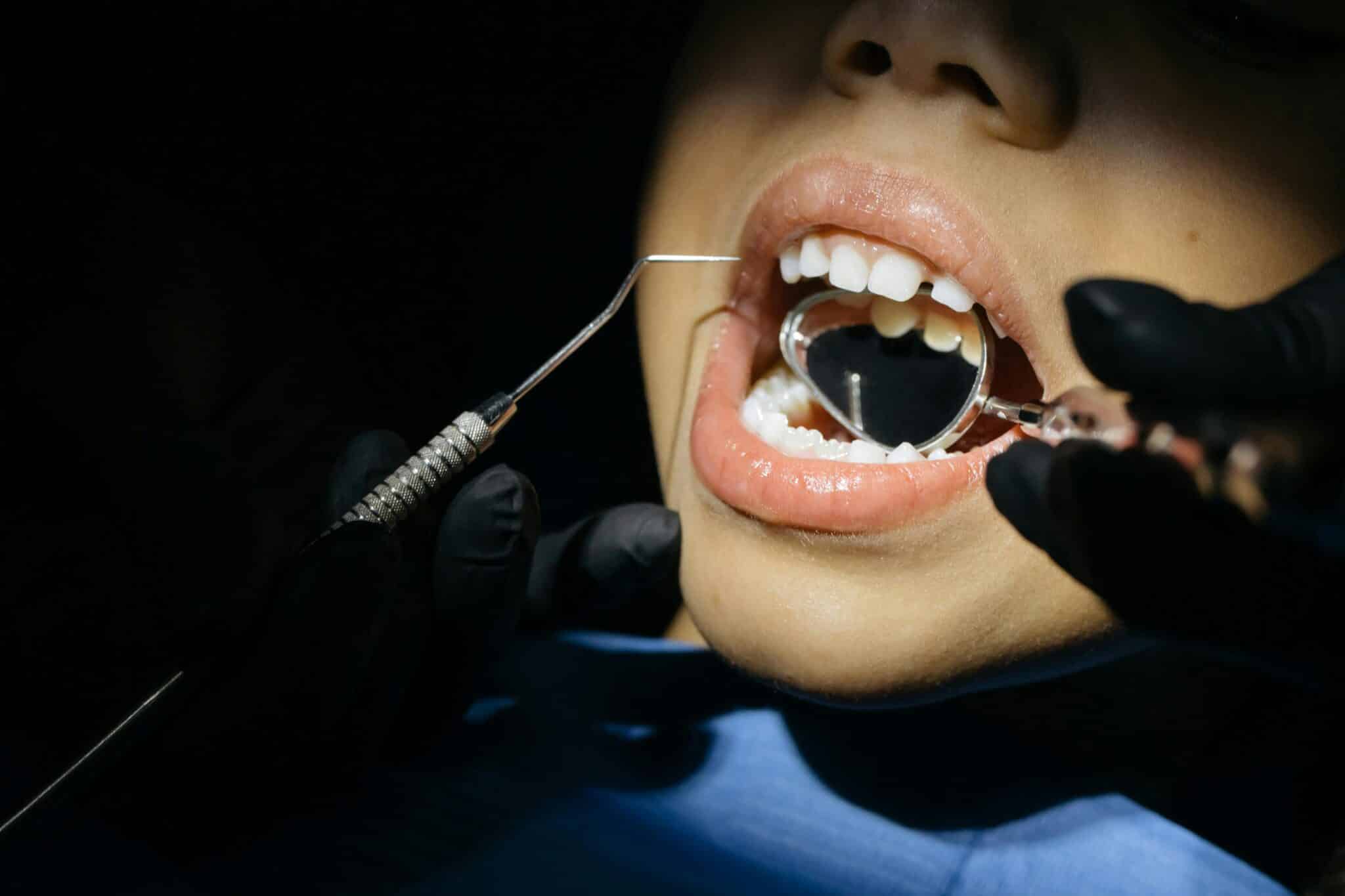These are two rows of teeth in a child’s mouth—one set of baby teeth still standing tall while a second row of permanent teeth erupts just behind it. This double-decker look is nicknamed “shark teeth.”
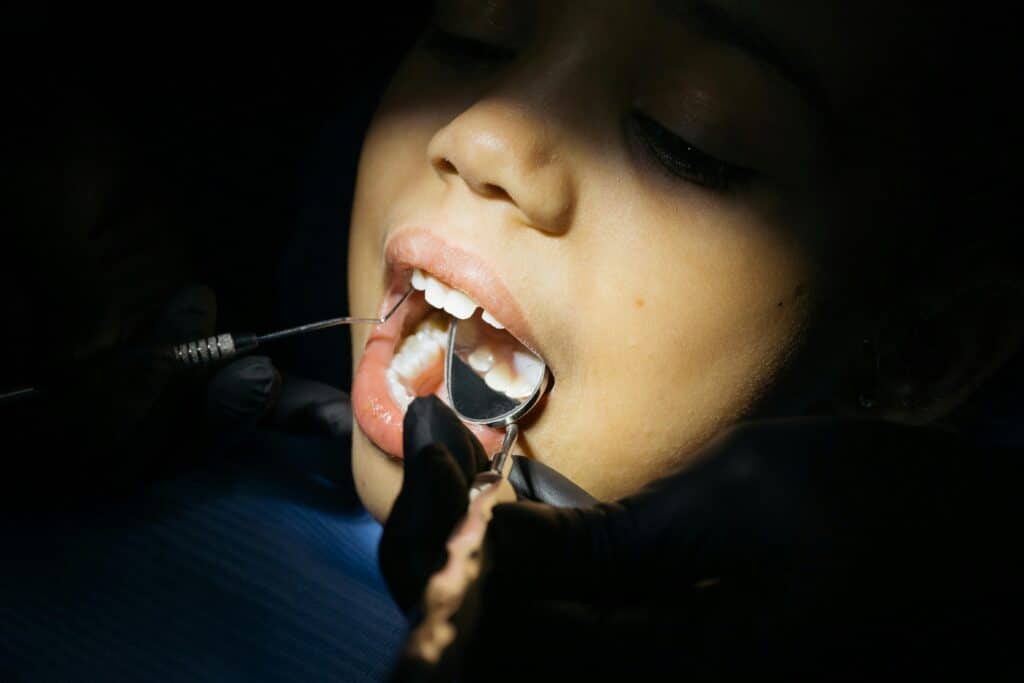
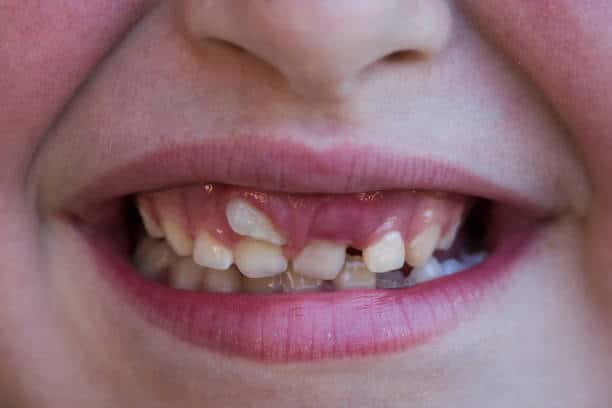

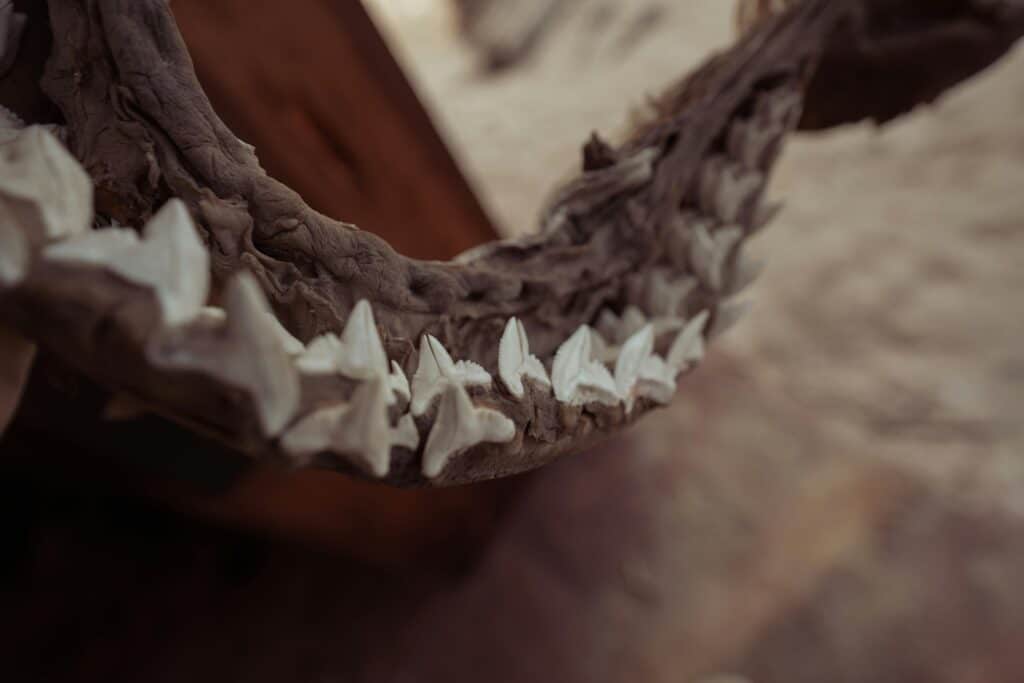
But is it dangerous? Will the extra row straighten out on its own? And when should you call a dentist?
Why Does It Happen?
Several factors can lead to this quirky eruption pattern:
- Timing Mismatch – The permanent tooth appears before the baby tooth root has dissolved.
- Lack of Space – Crowding leaves no room for the new tooth to push forward.
- Ankylosed Baby Tooth – The baby tooth’s root fuses to the bone, refusing to budge.
Most cases occur around ages 5–7 for lower incisors and around 10–12 for upper incisors, but they can happen with any primary tooth.
When to Relax—and When to Act
Situations That Usually Resolve Themselves
- The baby tooth is already loose.
- The permanent tooth is less than 2 mm behind the baby tooth.
- Your child can gently wiggle the baby tooth daily without pain.
Red Flags That Need Professional Help
- The baby tooth isn’t loosening after two to three weeks of wiggling.
- Your child feels pain while eating or brushing.
- Speech becomes slurred or “crowded.”
- Adult teeth behind baby teeth are causing bite misalignment.
If any red flag appears, schedule a quick pediatric dentistry visit for a thorough evaluation.
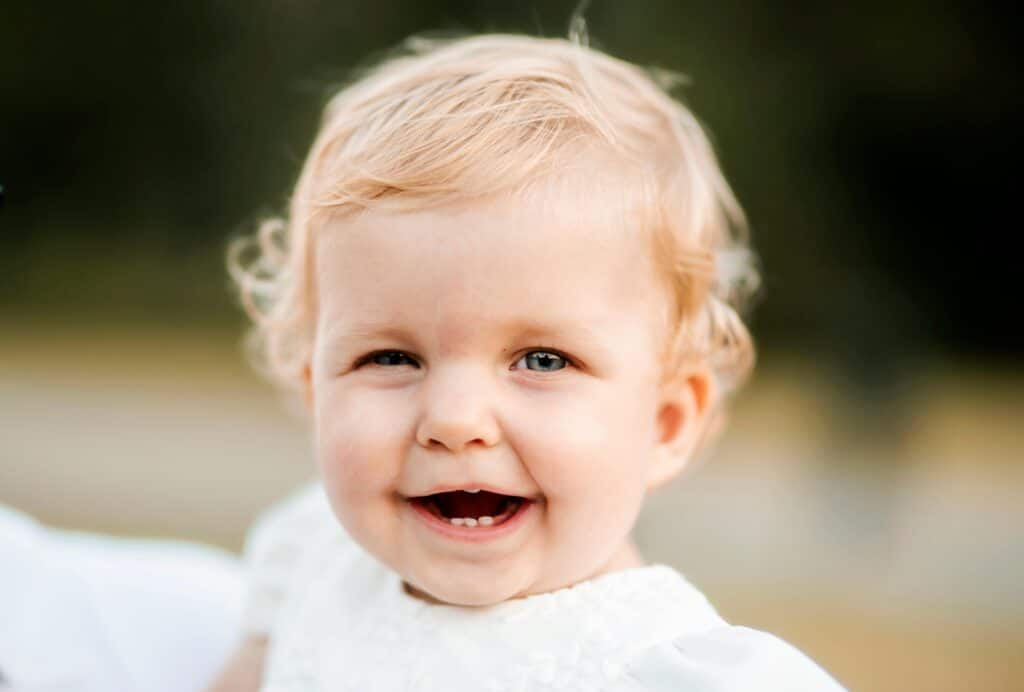

What Your Dentist May Recommend
1. Simple Monitoring
If the baby tooth becomes wiggly and pain-free, the dentist may simply track progress during routine dental checkups.
2. Manual Extraction
When the baby tooth won’t loosen—or if crowding risks the adult tooth’s position—a quick, gentle tooth extraction may be suggested. The procedure is fast, local-anesthetic only, and recovery is usually less than 24 hours.
3. Orthodontic Evaluation
Persistent crowding or bite problems might call for an early orthodontic evaluation. Catching alignment issues young often shortens (or even avoids) braces later.
Prevention and Long-Term Care
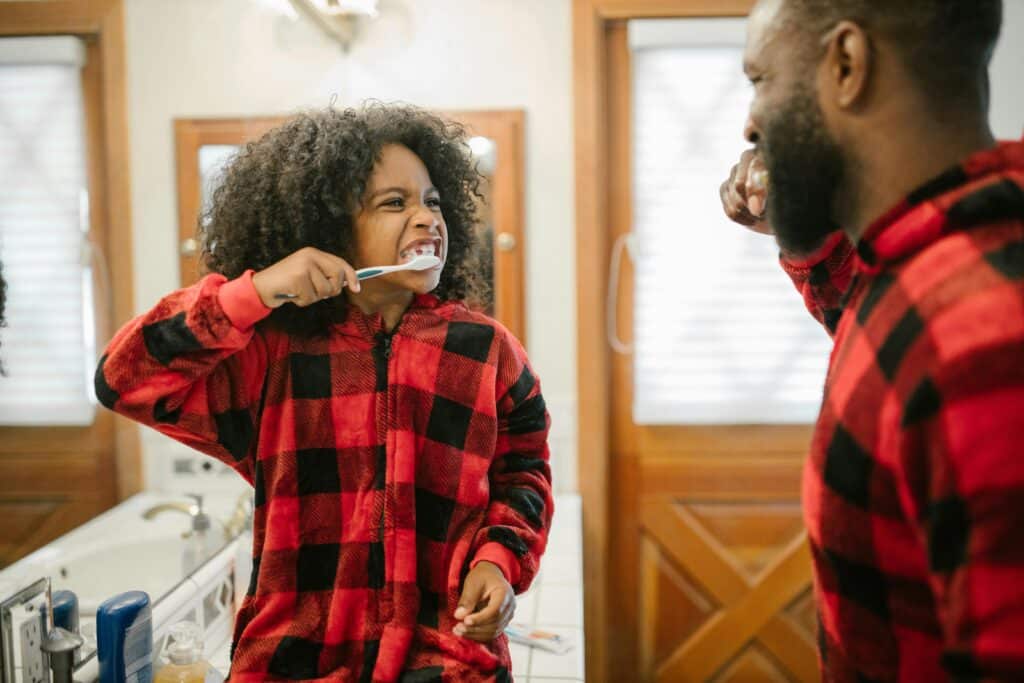
While you can’t always stop shark-teeth eruption, you can minimize complications:
- Schedule six-month cleanings and fluoride treatments to keep enamel strong.
- Ask about space maintainers after early extractions to guide future eruption.
- Maintain a balanced diet rich in calcium and vitamin D for healthy tooth development.
Frequently Asked Parent Questions
Q: Will shark teeth cause permanent crookedness?
Usually not—especially if addressed early. The adult tooth often drifts forward naturally after the baby tooth exits.
Q: Does removing the baby tooth hurt?
A topical gel plus local anesthetic keeps the procedure virtually painless. Children typically return to school the next day.
Q: Can shark teeth lead to cavities?
Double rows trap food easily. Consistent brushing and flossing, plus professional cleanings, keep decay risks low.
Shark Teeth Shouldn’t Sink Your Child’s Smile
“Shark teeth” might look alarming, but most cases resolve smoothly once the baby tooth gets moving. Still, lingering double rows, crowding, or pain can spell future alignment trouble if you wait too long.
Your dentist can quickly assess whether gentle monitoring, a simple extraction, or an orthodontic check is the smartest next step—saving your child discomfort and you bigger bills down the road.
Have questions or ready to book your next visit?
Contact us today—we’re here to help every step of the way.


